We have now started the countdown to the online Tudors and Stuarts History Weekend on Saturday 27 and Sunday 28 March having had the first practice with one of our speakers this morning. Currently Dr Diane Heath, Toby Charlton-Taylor and I have another tomorrow and three scheduled for Friday with the rest to take place next week.
Tickets for individual lectures, as well as the bargain Weekend Ticket for everything are still available at https://www.canterbury.ac.uk/tudors-stuarts and if you want a Weekend Ticket, this can be done by clicking on any of the talks. Go to booking and you will see Weekend Ticket is the second option. Just purchase that ticket and all the joining urls for the thirteen events will be sent to you. You do NOT need Microsoft Teams on your device, just come in via the web anonymously. For any help with the tickets you can contact Kellie in the Box Office at artsandculture@canterbury.ac.uk and for any help with IT, please either phone 01227 922626 (weekday office hours only) or email it-service@canterbury.ac.uk and they will be delighted to help you.
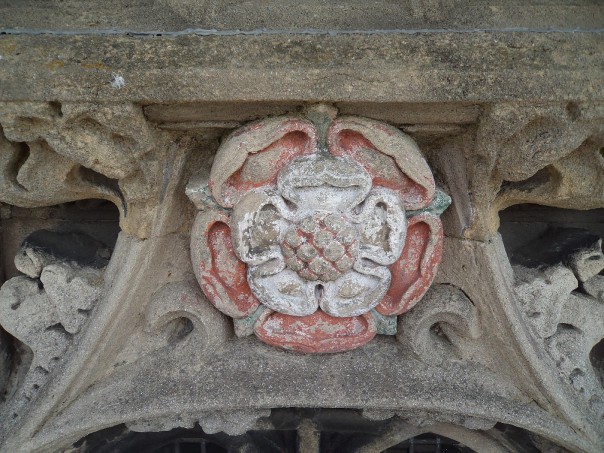
Moreover, and calling all secondary school and sixth form college history staff, do please consider this offer. Any school or sixth form college can also purchase a Weekend Ticket, which will allow the school to pass the joining details of all the lectures to that school’s students only, because we want to encourage GCSE and 6th form History students to hear these fantastic speakers. As at our previous History Weekends, the aim of the organisers is to raise money for the Ian Coulson Memorial Postgraduate Award fund to help those at CCCU wishing to research Kent history topics. So far, we have helped about twelve postgraduates researching topics from medieval cultural perceptions of prehistoric barrows to how rural communities fed themselves beyond the national rationing system during WWII, and many projects in-between.
Additionally, we are exceedingly grateful to Craig at the CCCU Bookshop for setting up a ‘Tudors and Stuarts’ virtual bookstore on the Bookshop’s website. Please check this out because our great speakers are also brilliant authors! https://bookshop.canterbury.ac.uk/canterbury-history-weekend-2021
And talking of excellent authors, this is advance notice that Dr Marc Morris will be ‘in conversation’ about his new book-length study on the Anglo-Saxons in England in late May, hosted by the Centre. Details will be available after Easter, and it promises to be a fascinating evening.
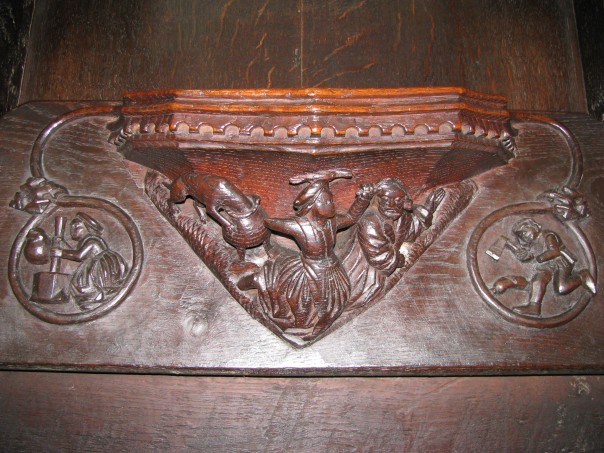
Before I preview some of the delights coming up at Tudors and Stuarts 2021, I thought I would mention that it is Professor Louise Wilkinson’s Inaugural Professorial Lecture at the University of Lincoln on Thursday 18 March. She will be speaking on ‘Searching for Amazons: Uncovering Women’s Lives in Medieval Lincoln and Beyond’. I’m very much looking forward to this and I know lots of other people from CCCU are too – all the best for a great evening, Louise!
Still keeping with the Middle Ages, I thought I would draw your attention to Thomas Becket: Life, Death and Legacy, a three-day online conference organised by the HLF-funded Canterbury Journey team at Canterbury Cathedral, with staff at the University of Kent and Canterbury Christ Church University from Wednesday 28 to Friday 30 April. This conference has been created to mark the 850th anniversary of Becket’s martyrdom and the 800th anniversary of the translation of his body into the Trinity Chapel of Canterbury Cathedral. To commemorate his extraordinary life and legacy at Canterbury, international scholars will gather virtually to offer exciting insights about Becket and his legacy, the conference held online via the Zoom Video Conferencing website.
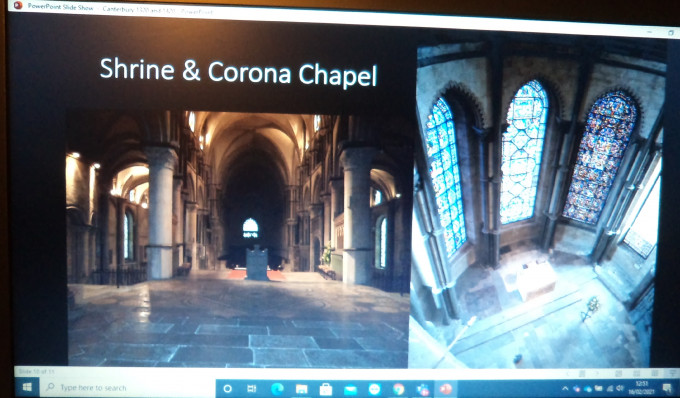
Our speakers will examine the history, visual and material culture, archaeology, architecture, literature, liturgy, musicology, and reception of Becket’s cult at Canterbury, across Europe and beyond, looking not only across space but also time. Thus, we will move from new archaeological discoveries at Canterbury Cathedral to exploring ‘Souvenirs of Devotion’, to Perceptions and Devotion to Becket that encompass the local and the global, with much in-between. Moving through time, we will examine the growth of the cult in multiple ways and using a wide range of material culture before seeing how and why it ended in the turbulent sixteenth century. Furthermore, the conference organisers are delighted to welcome three distinguished keynote speakers. Rachel Koopmans, Paul Webster and Alec Ryrie will offer new insights and ideas, again moving from twelfth- to sixteenth-century Canterbury and beyond. As an extra, there will be a series of virtual tours, taking people right into the heart of Canterbury Cathedral and the surrounding area, allowing those attending the conference to get up close with some of the stunning architecture and artefacts from Becket’s long and storied history.
For further details, please see: https://becket2020.com/ and any questions, please email: canterburybecket2020@gmail.com Standard Tickets are £25 per day and for students the day rate is £10.
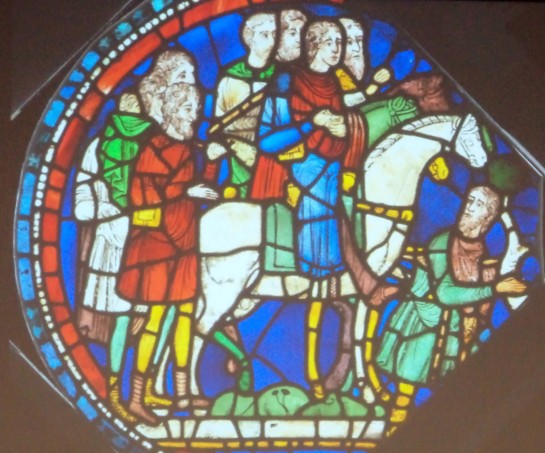
Another event involving the Centre as a partner is the monthly FCAT Lecture on Thursday 25 March at 7pm online using Zoom. Angélique Demolon, the Heritage Curator and Director of the Service Archéologie of Boulogne-sur-Mer, will be speaking on ‘Boulogne, the Channel and Kent across the Ages’. Her talk, based on historical and archaeological evidence, will take us on a journey into the shared history of Kent and the Boulonnais: from the commercial and cultural exchanges of the Roman period, to the Hundred Years War, the capture of Boulogne by the troops of Henry VIII in 1544, the failure of Napoleon to invade England at the beginning of the 19th century, the birth of a tourist resort and an English community later in that century, to the ferry of the 1980s … ‘Pas-de-Calais’ could then have been named ‘Pas-de-Boulogne’.
All are welcome and those not FCAT members, please check: https://www.canterburytrust.co.uk/fcat a couple of days beforehand, or email me at: sheila.sweetinburgh@canterbury.ac.uk
Now back to Tudors and Stuarts 2021, I just thought I would introduce a few of the presentations and then leave you to find all the other exciting talks on the website. This year our ‘live’ talks are under the themes of ‘Royalty and Conflict’, ‘Minorities’, ‘Manuscripts and Religion’, and ‘Social History’, bookended by a film on the Cathedral Library at the beginning and Early Tudor Canterbury as the final event. Among the leading academics who will be talking about their research interests are Lena Orlin, Glenn Richardson, Pamela King and Onyeka Nubia. So what will they be discussing?
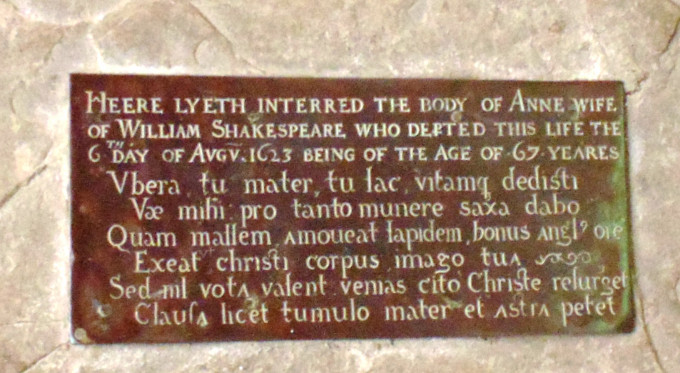
Lena Orlin will be taking us on a voyage of exploration to see whether we can find Anne Hathaway. For Shakespeare’s wife has been both romanticized and reviled because we seem to have so little real information about her. But maybe there is another way, and, as Professor Orlin will show, if we experiment with reading these documents in light of fuller records for other Stratford-upon-Avon women, we may be far more successful. Indeed, we may find a different Anne Hathaway than we have known before, a working woman who ran a business as well as the Shakespeare household.
Turning to those who moved in royal circles, Glenn Richardson will examine one of the most important personal relationships in the history of Tudor England; that between Henry VIII and his Cardinal-Lord Chancellor, Thomas Wolsey. Seeing how Wolsey first secured Henry’s trust and confidence, Glenn will investigate their day to day communications, their formal and informal interactions. For were they friends, and how and why did Henry come to depend on Wolsey in the way he did, and with what consequences? Moving on, Glenn also considers the reasons for Wolsey’s fall and the validity or otherwise of charges of treason laid against him only weeks before his death in 1530. Finally, he will provide some assessment of Wolsey’s legacy in the remainder of Henry’s reign.
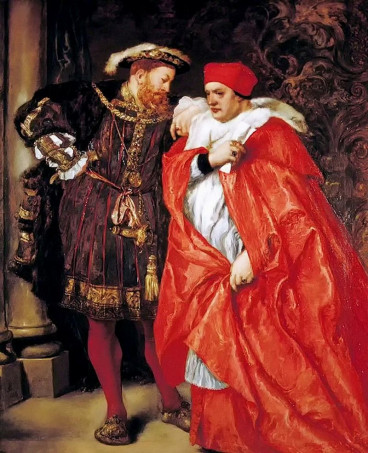
Having lost so much theatre in the last year, it is great that Pamela King will take us into the world of medieval drama and how such varied works continued to be known after the dramatic religious and political changes of the sixteenth century. This almost obsessive interest by Elizabethan and later scholars in the great cycles of mystery plays performed in honour of Corpus Christi, and other religious plays that either celebrated the life of an individual saint, including the Virgin Mary, or presented a moral allegory of the process of penance, one of the seven sacraments of the Roman Catholic church, can tell us much about how Renaissance English antiquarianism grew in response and reaction to censorship and iconoclasm.
To explore another highly pertinent issue Onyeka Nubia will reveal not only how the black presence in Tudor England was far greater than has previously been recognised, but that Tudor conceptions of race were far more complex than we have been led to believe. Thus, he will seek to redress the balance, for our image of the Tudor era remains overwhelmingly white, something that needs correcting in the light of his new research.
Consequently, there is much to celebrate and enjoy over the Tudors and Stuarts History Weekend and I hope that you will want to join us, not least because there is an exceedingly worthwhile cause behind it, the Ian Coulson Memorial Postgraduate Award fund. If you didn’t know Ian, here is a flavour of the man: https://blogs.canterbury.ac.uk/kenthistory/ian-coulson-and-kent/
 Centre for Kent History and Heritage
Centre for Kent History and Heritage Sheila Sweetinburgh
Sheila Sweetinburgh 1023
1023

